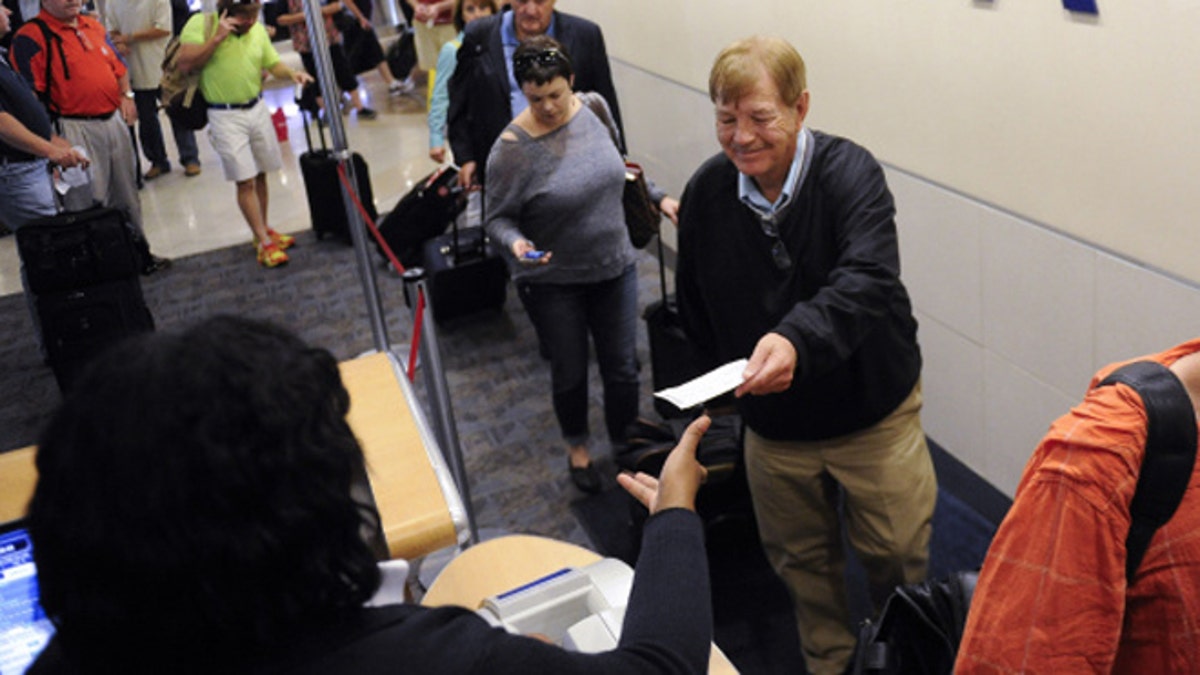
If you're a leisure traveler, there is little reason to be rewards customer. (AP)
Why worry about a frequent-flier loyalty program when most travelers don’t have a choice in which airline they fly? That seems to be part of the strategy behind the moves to dismantle frequent flier programs at major carriers, or to at least make them far less attractive to the average traveler.
Airlines are shifting their programs from air miles traveled to dollars spent, rewarding those passengers who are most profitable for the carrier, not those who fly the furthest. Both United and Delta have instituted dollar-based programs for 2015, with others, like American, watching closely.
Loyalty
The fact is, there is no loyalty. In a 2014 poll conducted by Wakefield Research for Capital One, only 9 percent of travelers bought airline tickets based on loyalty. The 9 percent that remain loyal tend to be road warriors who actually benefit from airline mileage programs and who also tend to be the most profitable travelers for airlines. They tend to book last minute tickets and pay the highest prices as a result. These are the individuals the airlines are focuses on, not the average leisure traveler who flies a couple of times a year.
The average leisure traveler shouldn’t care about frequent-flier programs, since they make it nearly impossible to earn and use rewards, even prior to the recent changes. Many have come to that realization, a reason why 38 percent of travelers in that same Wakefield Research study said that the price of the ticket was the number one driver of who they choose to fly.
This just confirms what we know based on common sense: When four major carriers control 85 percent of domestic air travel, flying a particular carrier is less about loyalty and more about default. There aren’t many choices anyway so why lavish rewards on those individuals?
Bad Programs
Dollar-based rewards may be good for airlines, but they are bad for businesses and even fliers. Small business owners aren’t thrilled about the new programs based on dollars spent for a simple reason: The new structure incentivizes their employees to book last-minute tickets at the highest fares in order to gain the highest reward level.
Some businesses have sought to confiscate frequent-flyer points and centralize them, taking away any incentive to abuse the booking process. Moves like this make the actual traveler less loyal to that particular airline, defeating the airlines’ strategy of trying to reward their most frequent, and profitable fliers. Ironic, isn’t it?
When their miles aren’t confiscated, top fliers stay loyal for one very big reason: complimentary upgrades to first- and business-class seats. This is the number one reason why many road warriors choose one carrier over another when they fly. It’s also another area of frequent flier programs that is taking a hit. Open first-class and business-class seats, which would normally be used to upgrade top fliers, are being held and sold to anyone willing to pay an additional fee. Those top fliers are seeing this perk get eaten up by the fee model that tries to squeeze every last dollar out of every passenger.
Airlines have slowly come to realize that in an era in which they make scads of money on ancillary fees there must be a way to save money by revamping frequent-flyer programs. In doing so they are only focused on the very top travelers who fly them week in and week out, and even then, are limiting the rewards.
For the average traveler the focus should only be on the lowest total cost of travel, and the time involved in getting there.
More From TravelPulse
Hints for How to Have a Happier Flight
CheapAir Launching First Direct Flights Between US and Cuba
Disney Partners with AmaWaterways for Family River Cruises
How the Westgate Las Vegas is Being Reborn
